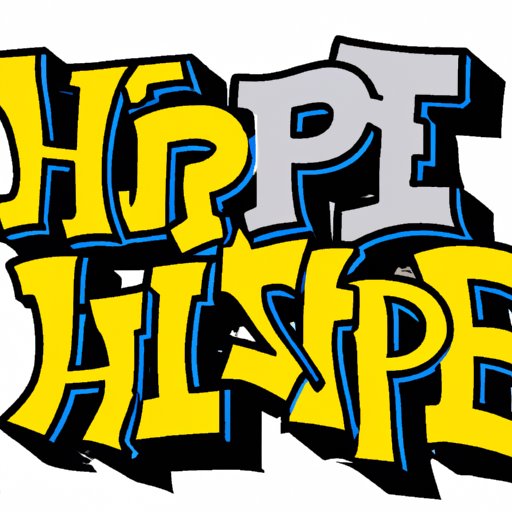Introduction
Hip hop culture is one of the most influential and recognizable forms of modern culture. It has evolved from a niche subculture to a global phenomenon that has shaped the way we view the world today. This article will explore the history and origins of hip hop culture, the impact it has had on society, and the cultural significance it holds for people all around the world.

Exploring the Origins and Evolution of Hip Hop Culture
Hip hop culture first emerged in the 1970s in the Bronx, New York City. It was born out of the African-American and Latino youth of the area, who were seeking an outlet to express themselves. As hip hop grew in popularity, it began to spread throughout the United States and eventually the world. The genre soon became associated with various other forms of expression, such as graffiti art, breakdancing, and fashion.
The early years of hip hop were heavily influenced by Jamaican sound system culture. DJs would use two turntables to blend together different records to create a continuous mix. MCs (rappers) would add their own lyrical style over the mix, creating a unique form of rap music. Other key influences included funk and soul music, spoken word poetry, and jazz.
The Impact of Hip Hop on Society
Hip hop has had a profound impact on society since its inception. It has been used as a tool for social change, providing an outlet for people to express their frustrations and aspirations. As hip hop gained mainstream recognition, it began to be represented in the media, allowing it to reach a larger audience and influence more people.
“Hip-hop has become a major influence in our society, and has provided us with a voice to speak out against oppression,” said rapper Common in an interview with The Guardian. “It has also given us a platform to celebrate our culture, and to share our stories.”
Examining the Music, Art, and Dance of Hip Hop
Music is at the core of hip hop culture. It is characterized by a heavy beat and rhymes that often tell stories about life in the inner city. Common musical elements include sampling, scratching, and looping. Rappers often collaborate with producers to create beats, or may use pre-made tracks.
Visual art has also been heavily influenced by hip hop culture. Graffiti art, or “tagging”, has become synonymous with hip hop. It is often used to express political and social messages, or to simply make a statement. Street art and graphic design have also been heavily influenced by hip hop.
Breakdancing is another popular form of expression in hip hop culture. It is characterized by acrobatic movements and intricate footwork. It has often been used as a form of competition between dancers, and has become a popular form of entertainment.
Understanding the Role of Graffiti in Hip Hop
Graffiti has been an integral part of hip hop culture since its inception. It is used to make statements, express political views, and even mark territory. It is often seen as a way to reclaim public spaces, and can be seen as a form of protest.
“Graffiti is a way of claiming ownership of public space,” said street artist Banksy in an interview with The Guardian. “It’s a way of saying ‘this is my place in the world and I’m not going anywhere.'”

Investigating the Fashion Trends of Hip Hop
Fashion has always been an important part of hip hop culture. Popular clothing items include baggy jeans, oversized T-shirts, and sneakers. These items are often associated with the “streetwear” style, which is heavily influenced by hip hop culture.
Designers such as Tommy Hilfiger, Nautica, and Fubu have become associated with hip hop due to their embrace of the streetwear style. Many hip hop artists have also become designers, creating their own fashion lines and collaborating with major brands.

Analyzing the Cultural Significance of Hip Hop
Hip hop culture is significant in many ways. It has become a powerful force in society, representing a generation and unifying subcultures. It has allowed people to express themselves in ways that were previously unheard of, and has given them a platform to share their stories.
“Hip-hop is a culture that speaks to a lot of people,” said rapper Nas in an interview with The Guardian. “It speaks to the young, it speaks to the old, it speaks to the rich, it speaks to the poor. Everyone can relate to it in some way.”
Conclusion
Hip hop culture is one of the most influential and recognizable forms of modern culture. It has evolved from a niche subculture to a global phenomenon that has shaped the way we view the world today. This article has explored the history and origins of hip hop culture, the impact it has had on society, and the cultural significance it holds for people all around the world.
Hip hop has provided a platform for people to express themselves and share their stories. It has unified subcultures, and has become a powerful force in society. Hip hop culture has come a long way since its inception, and will continue to be an important part of our culture for years to come.
(Note: Is this article not meeting your expectations? Do you have knowledge or insights to share? Unlock new opportunities and expand your reach by joining our authors team. Click Registration to join us and share your expertise with our readers.)
